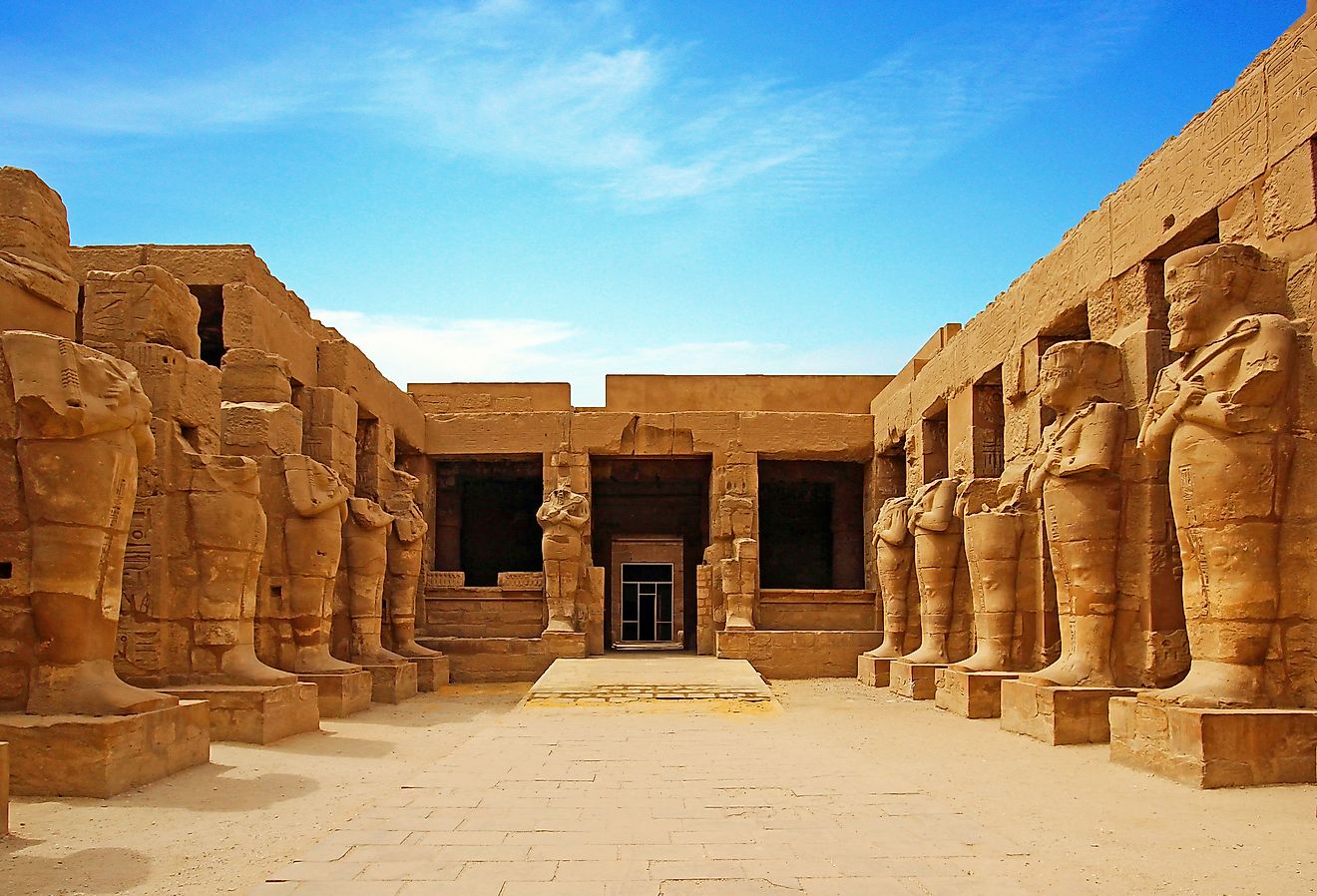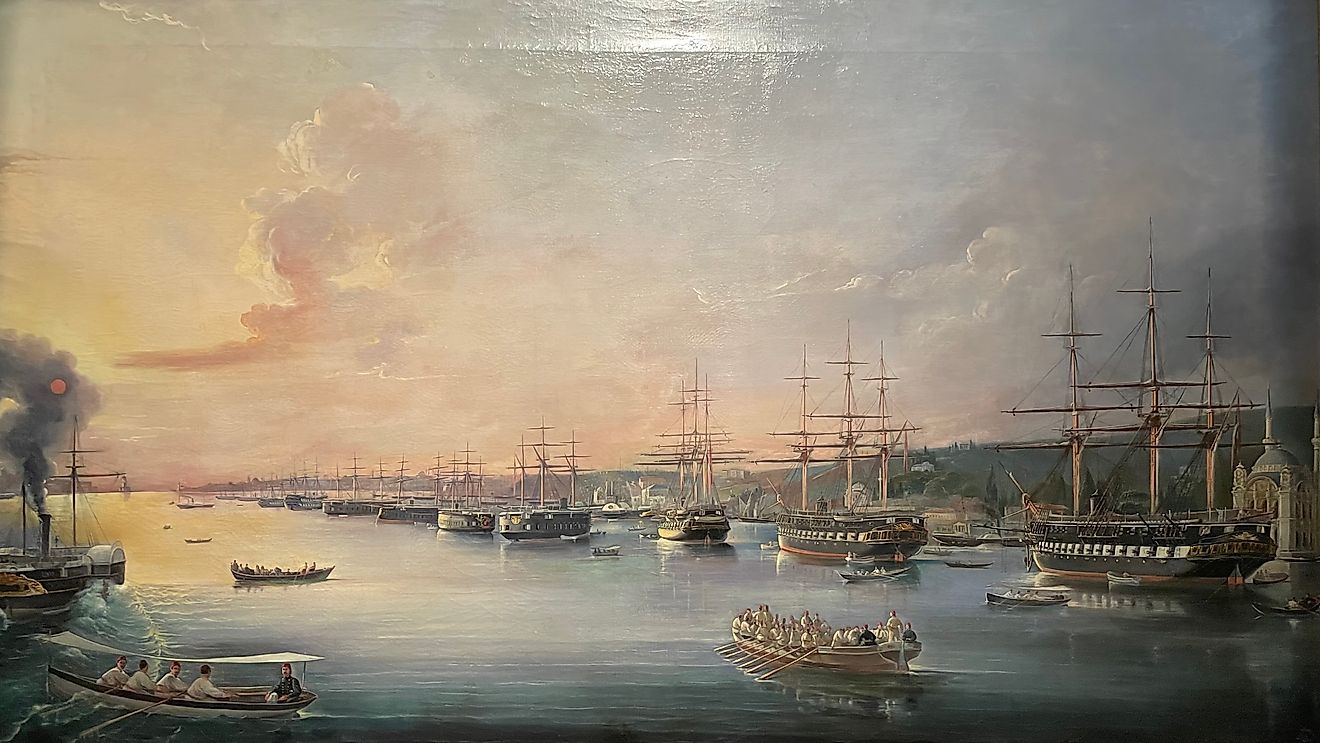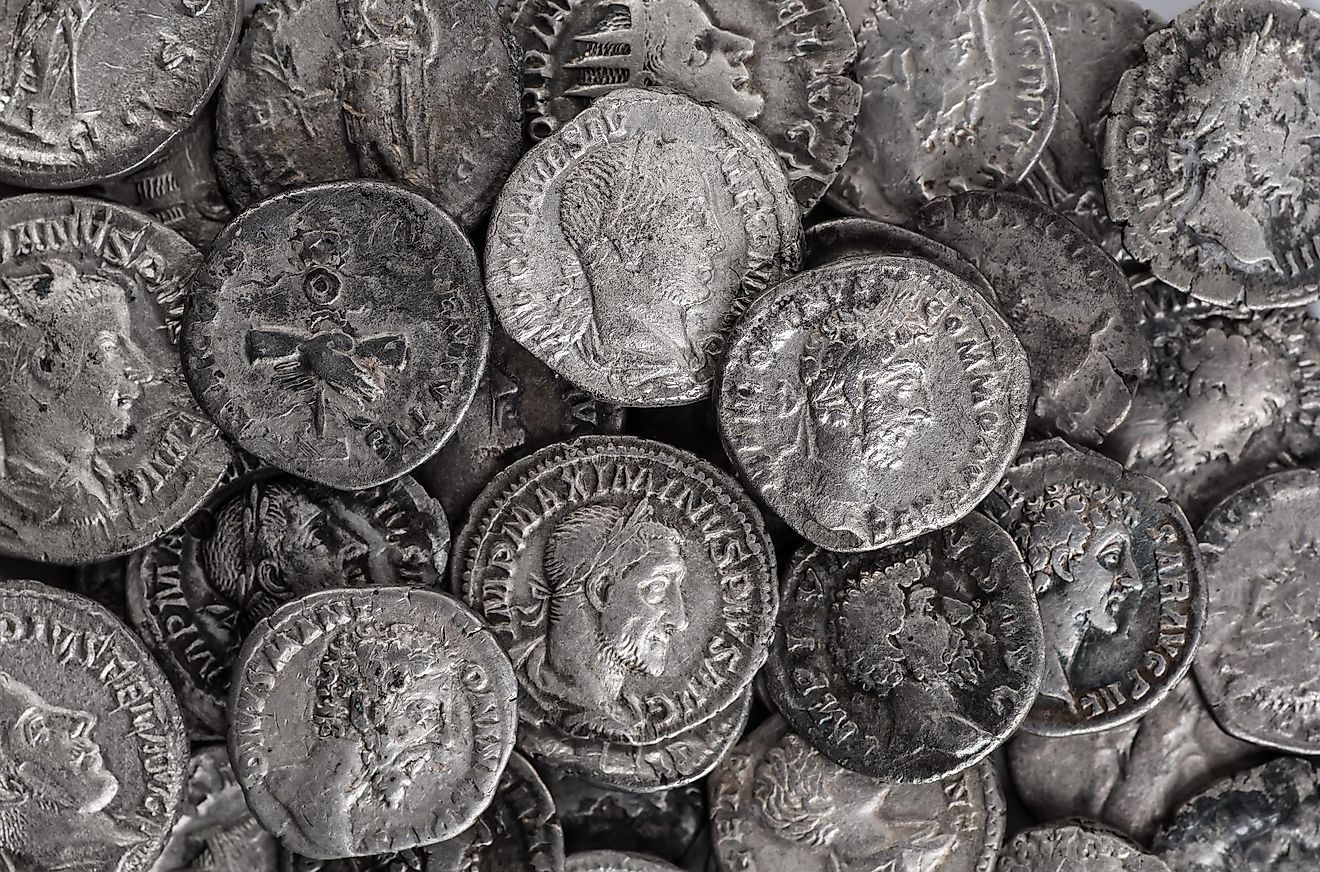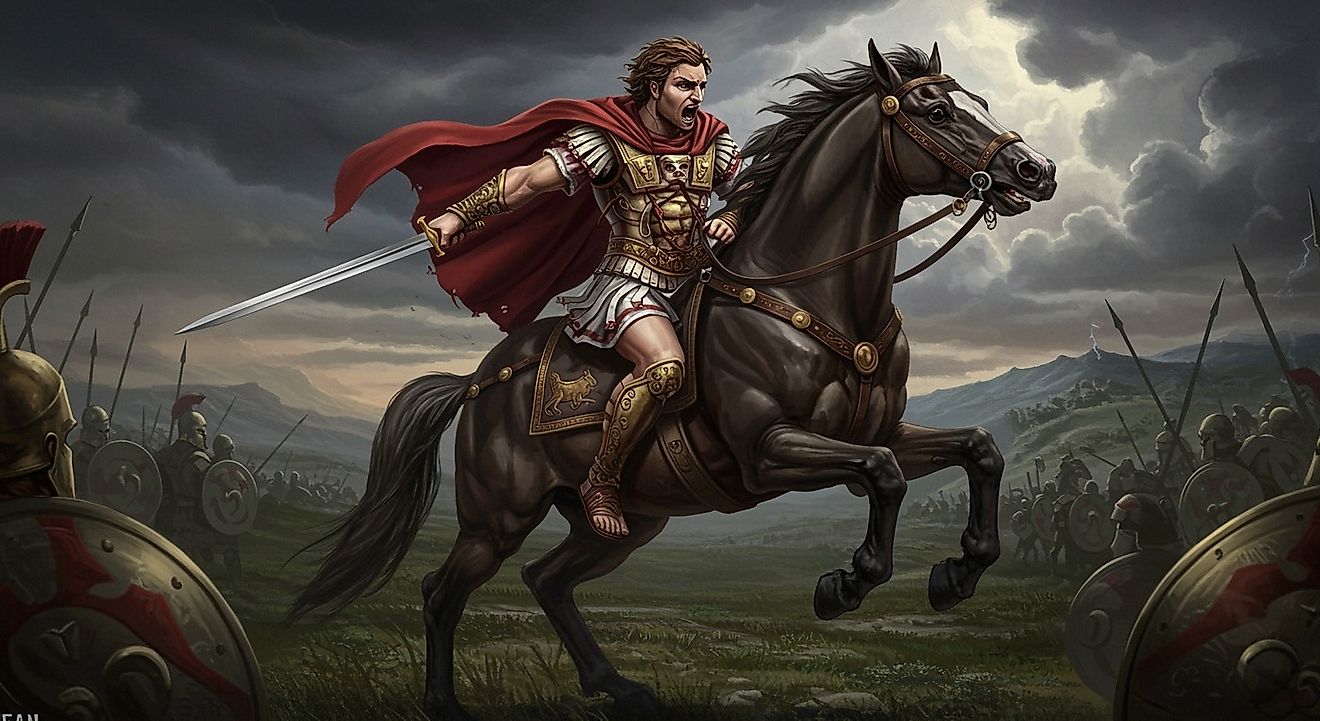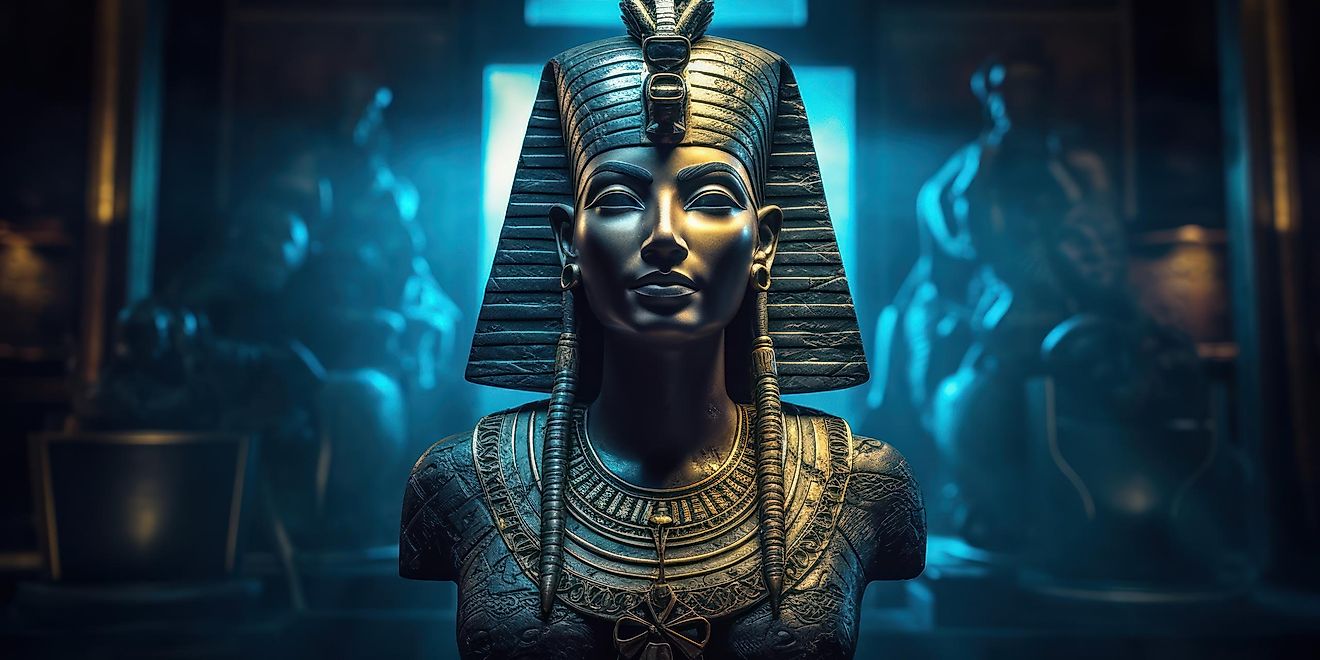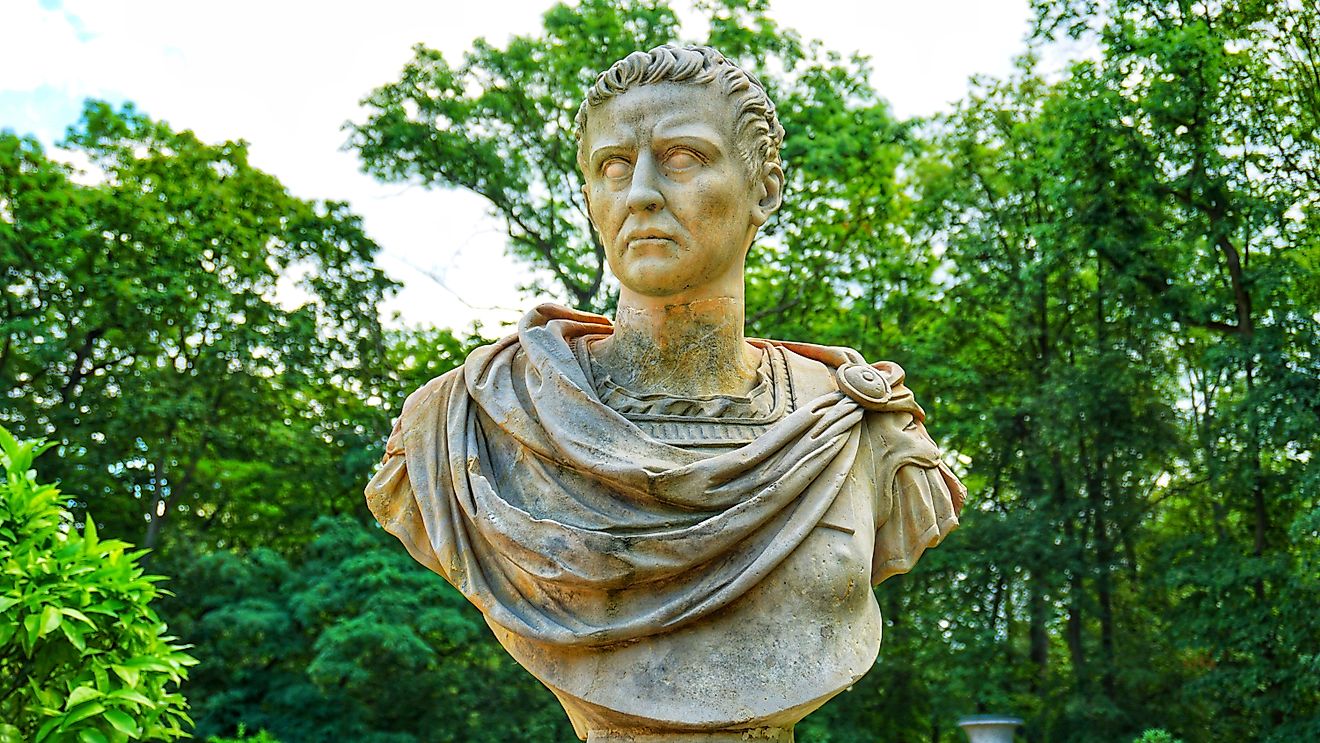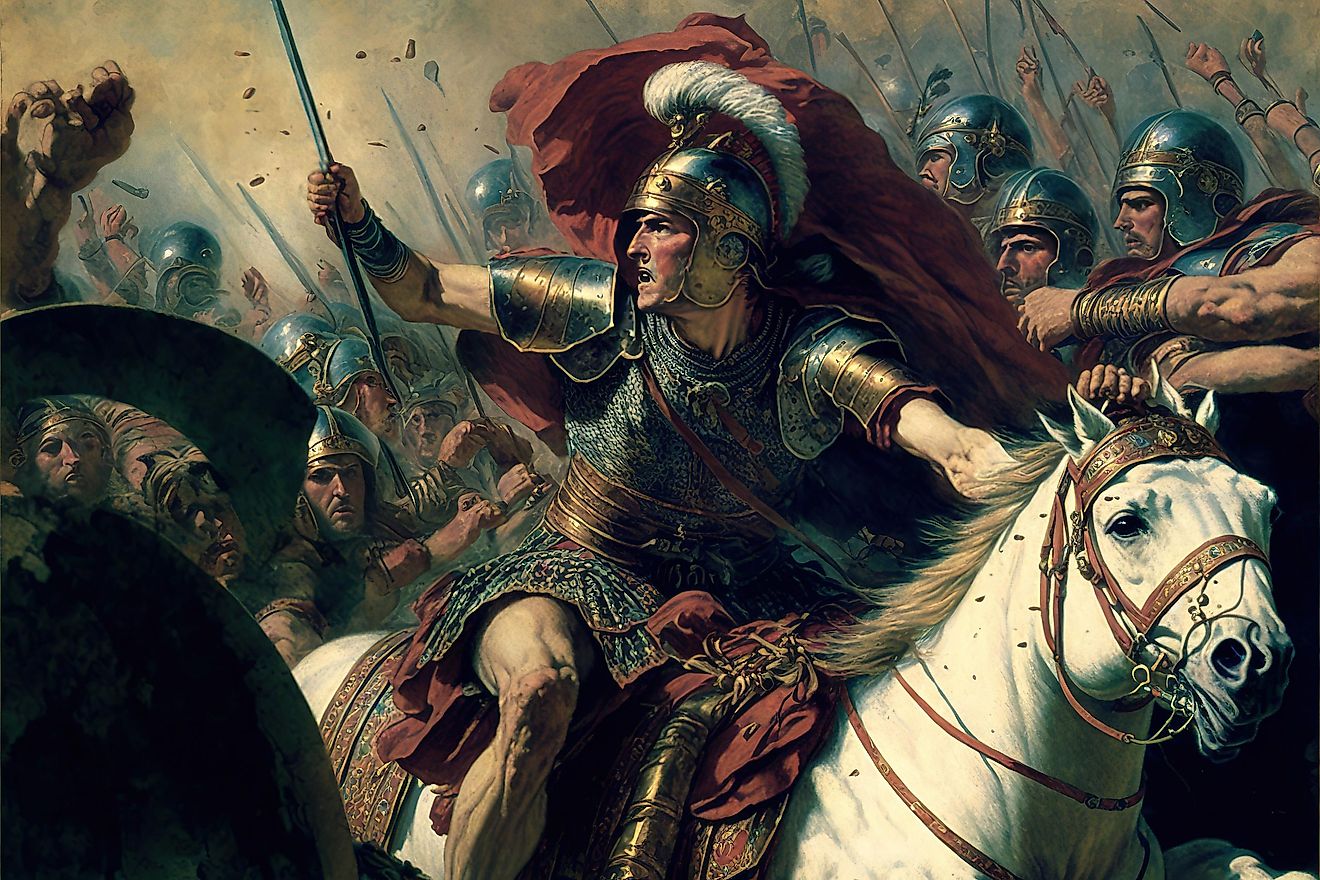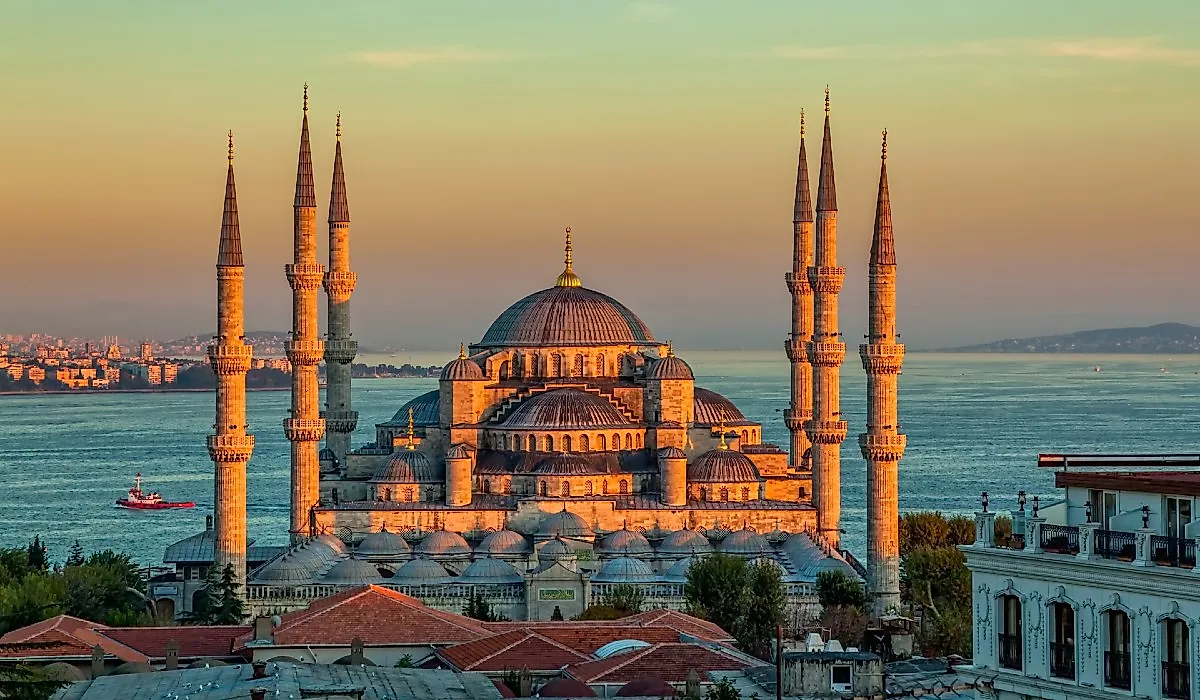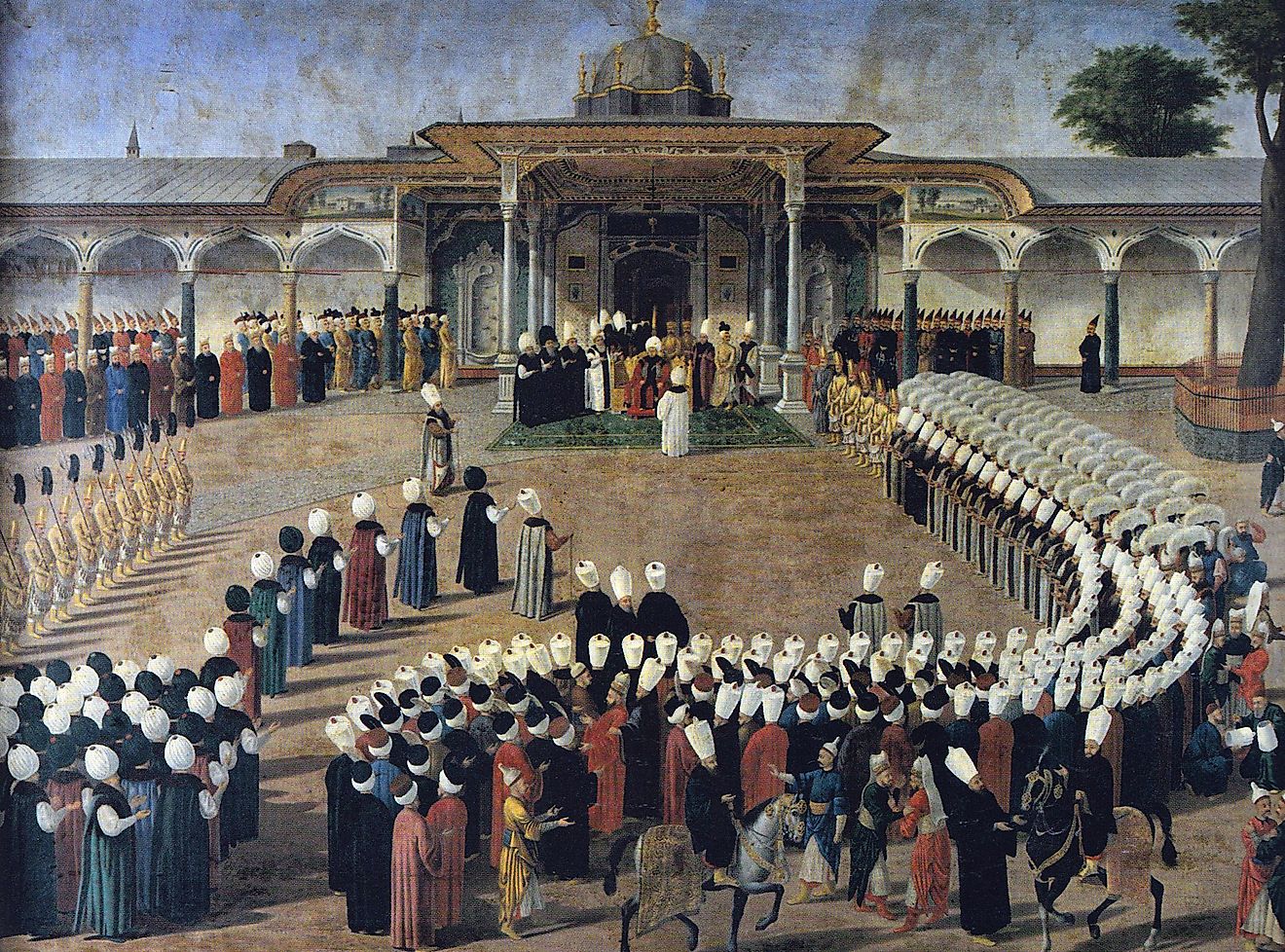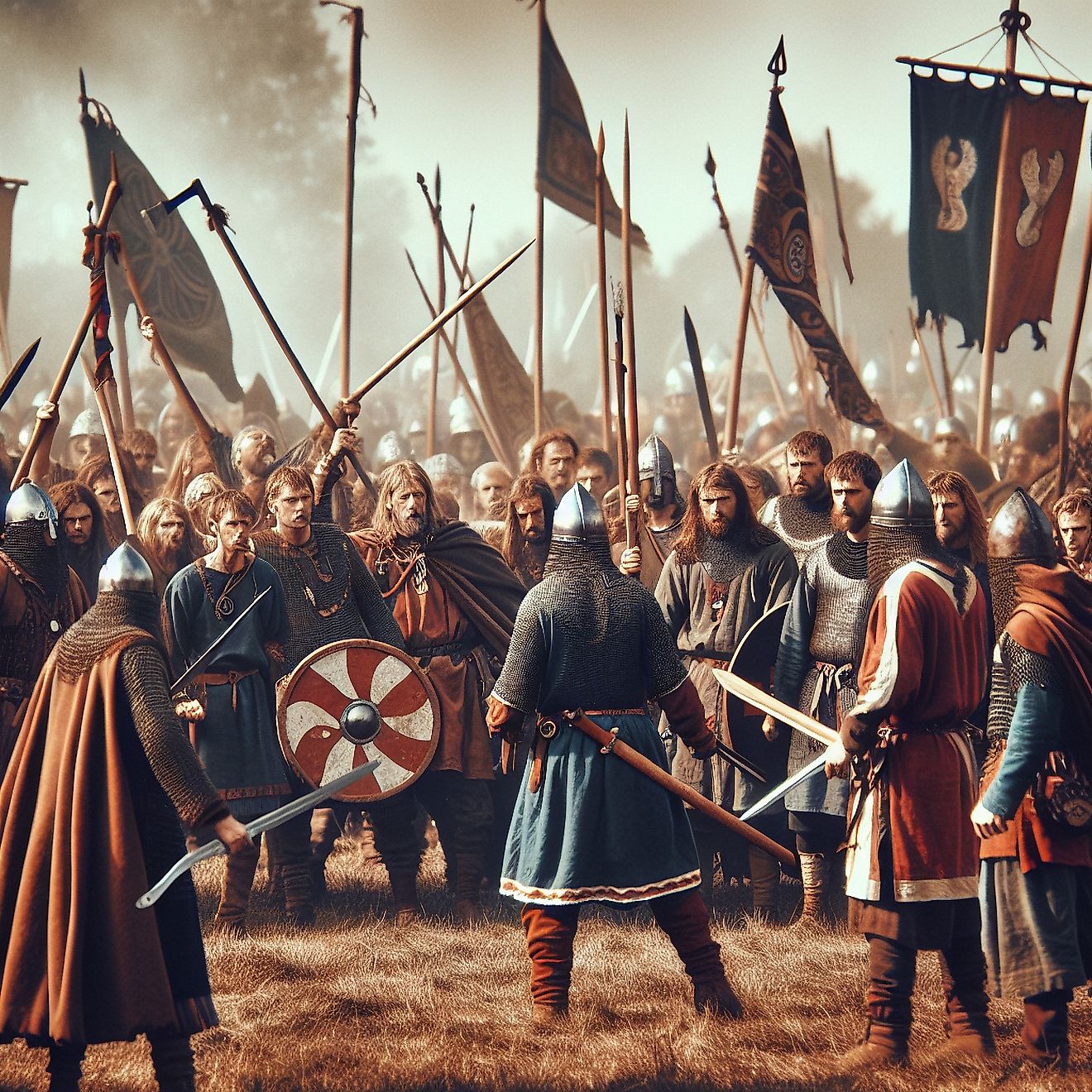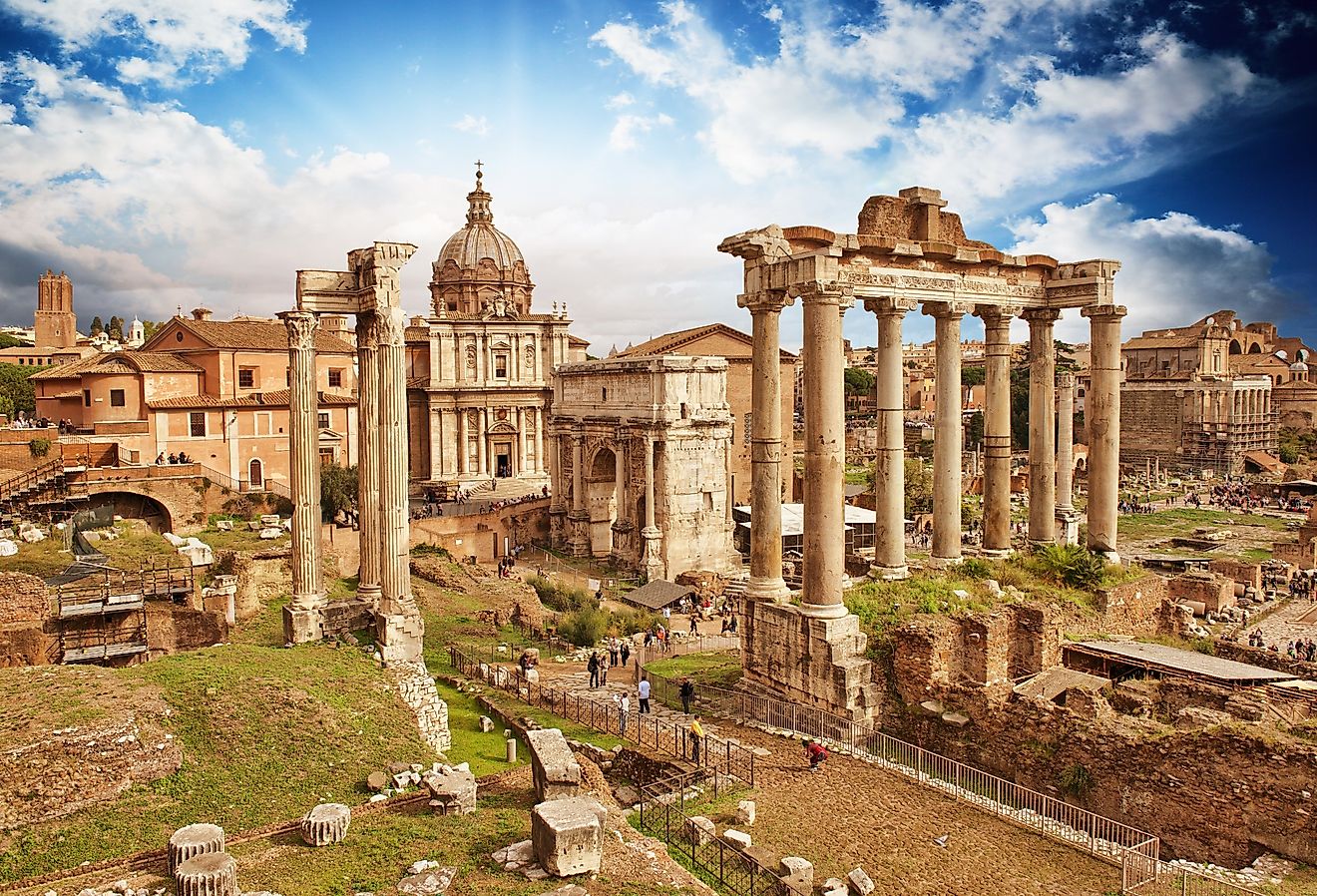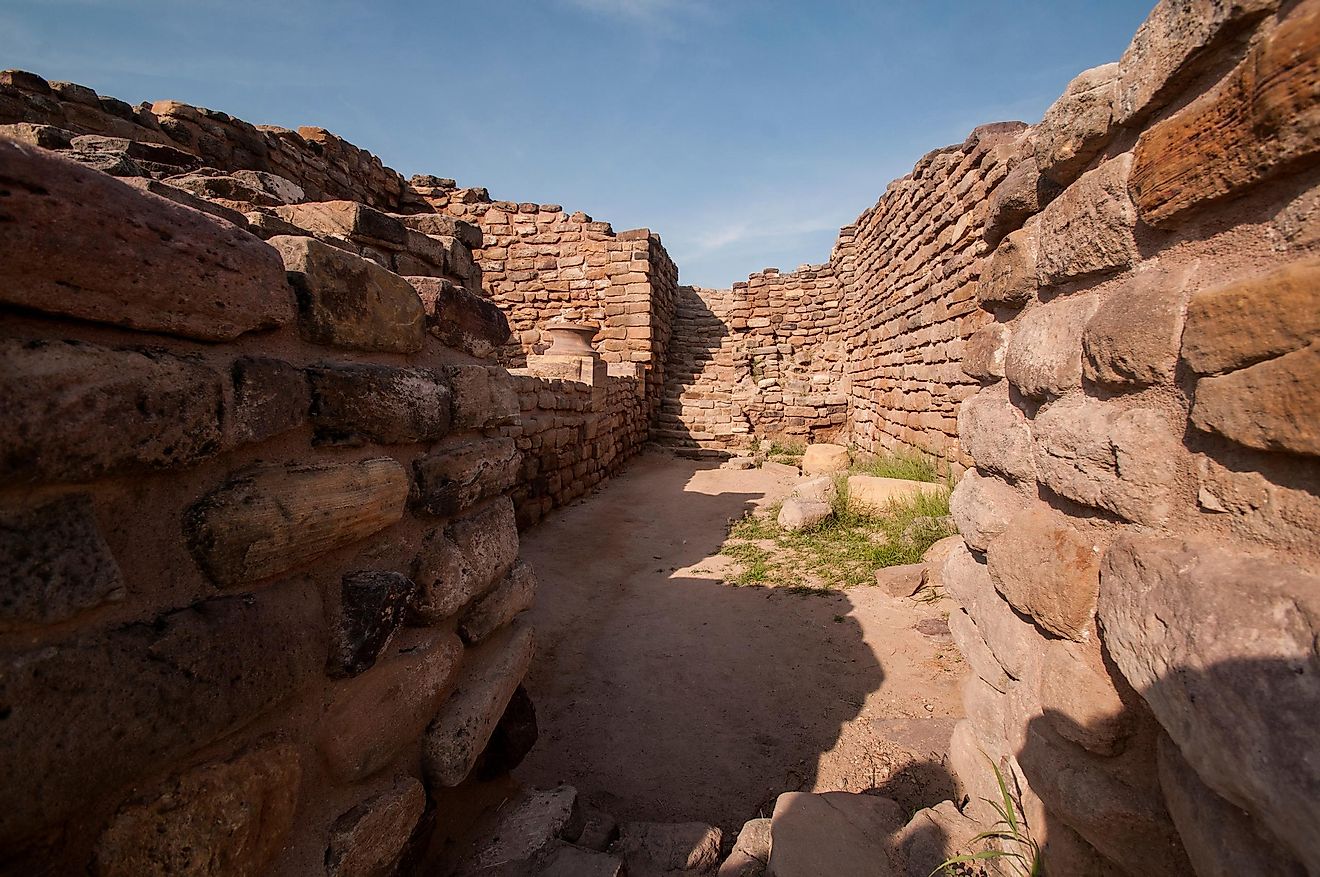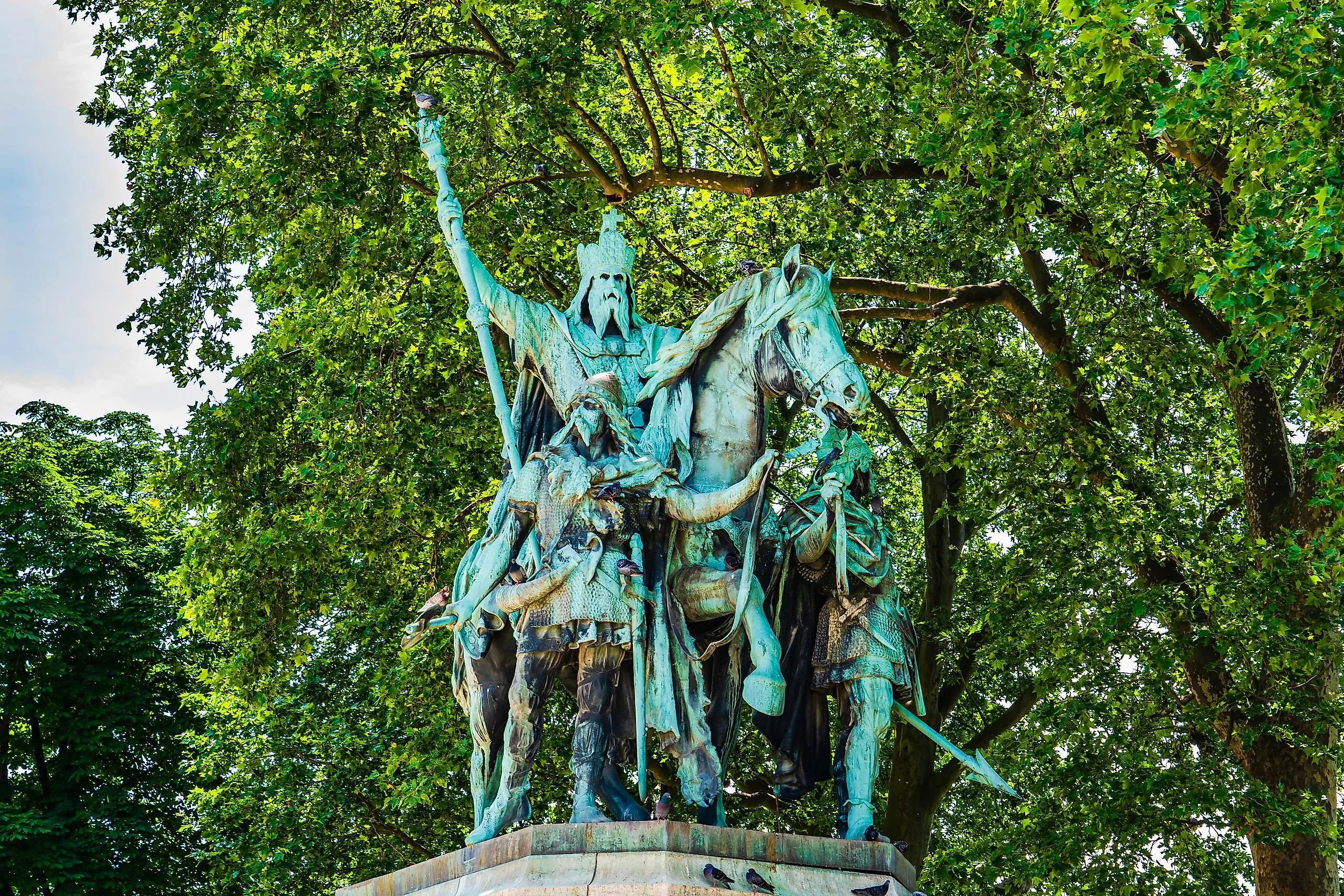
Charlemagne
Charlemagne, or Charles the Great, was a towering figure in European history, remembered for his military might and ambitious efforts to unite the various Germanic tribes of Europe under his rule. He was also a fervent promoter of Christianity and an ardent supporter of education and the arts, earning him a lasting reputation as one of the greatest rulers in history. As ruler of the Franks in the 8th and 9th centuries, Charlemagne left a lasting impact on the development of Europe and the world.
The Brotherly Conflict: Charlemagne's Rise to Power
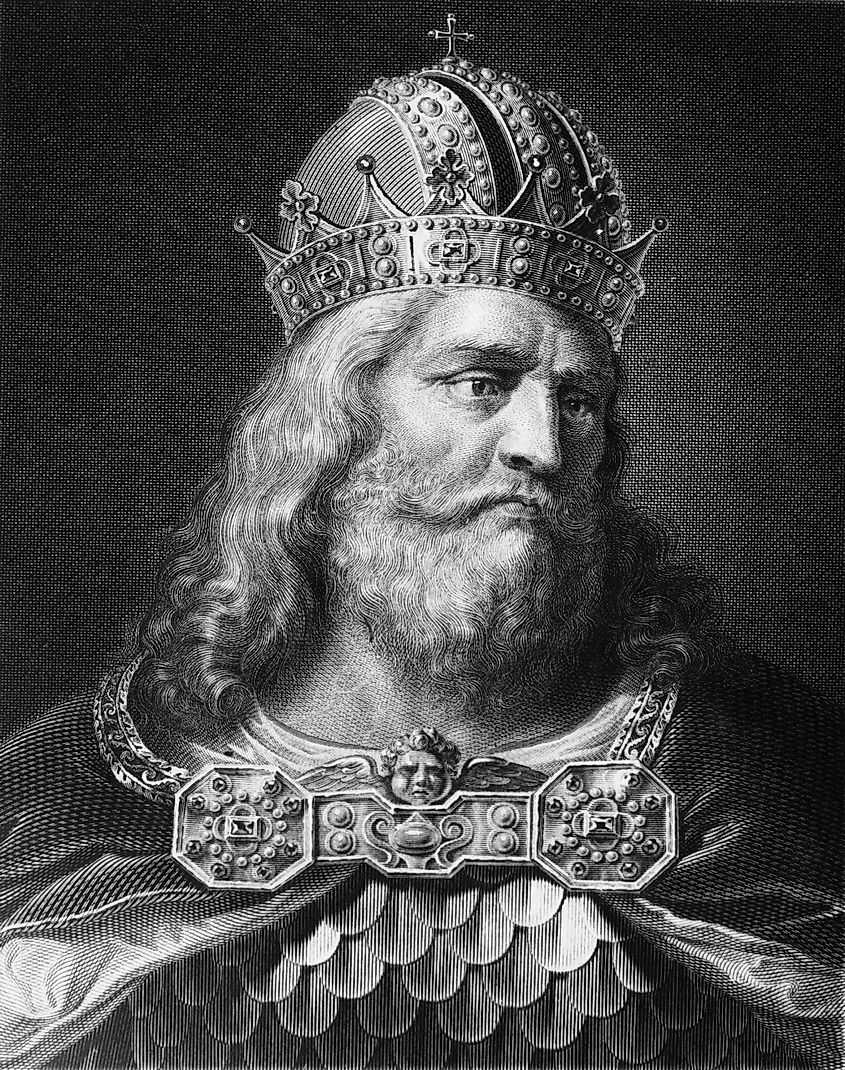
Charlemagne was born in 747 in the Frankish kingdom, which at the time controlled much of modern-day France and Germany. He was the son of Pepin the Short and Bertrada of Laon, and the younger brother of Carloman. Charlemagne was well-educated and proficient in Latin and other subjects, and he received military training from a young age.
In 768, Charlemagne and his brother Carloman inherited the Kingdom of the Franks upon the death of their father, Pepin the Short. The two brothers initially ruled jointly, but they soon had a falling out and became rivals for power. The exact reason for the conflict between the two brothers is not apparent, but it is likely that they had different ideas about how to govern the kingdom and may have had competing ambitions.
The conflict between Charlemagne and Carloman was on a direct course to civil war. This was avoided, however, when Carloman suddenly died. While official reports say that Carloman's death was of natural causes, it came at a convenient time for Charlemagne. Carloman had children who, according to the law, would have taken over his kingdoms; however, Carloman's wife, Gerberga, fearing for the lives of her children, fled the Frankish Empire and sought protection from the Lombard King, Desiderius, in Italy. Thus, making it easy for Charlemagne to assume his late brothers' half of the kingdom and become the sole ruler of the Frankish Empire.
Conquering Empires: Charlemagne's Military Campaigns and the Creation of the Carolingian Empire
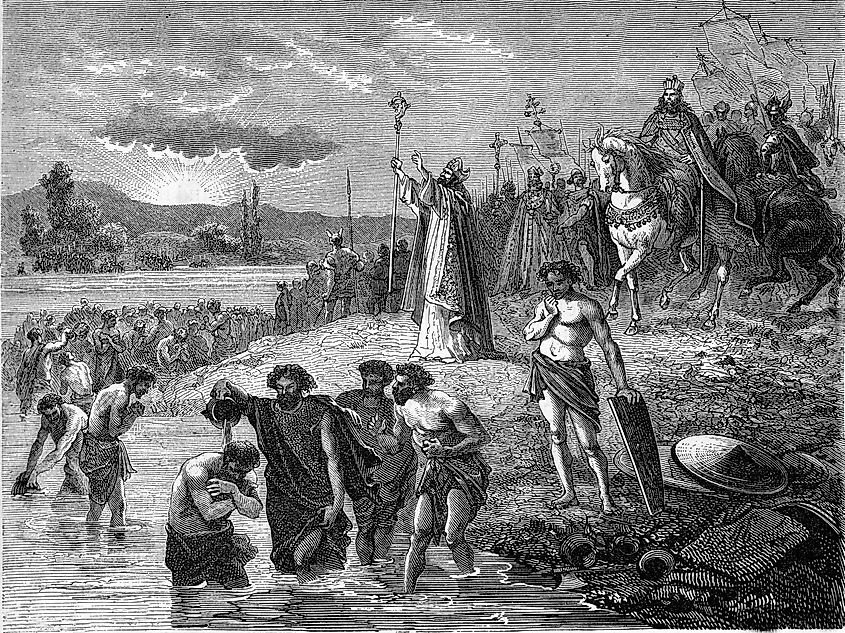
After becoming the sole ruler of the Franks in 771, Charlemagne embarked on a series of military campaigns to expand the Frankish kingdom and bring unity to the Germanic tribes of Europe. His first major campaign was against the Saxons, a Germanic people who lived in what is now modern-day Germany. The Saxons had long resisted Frankish rule, and Charlemagne spent much of the late 8th and early 9th centuries fighting to subdue them.
Charlemagne's campaigns against the Saxons were brutal and often involved large-scale massacres of the Saxon people. However, his efforts were eventually successful, and by the early 9th century, the Saxons had been largely subdued and were forced to accept Frankish rule. Charlemagne also established a system of missionary centers throughout Saxony to help spread Christianity and assimilate the Saxons into Frankish culture. In addition to his campaigns against the Saxons, Charlemagne also led military expeditions against the Lombards, a Germanic people who lived in what is now Italy. Charlemagne's campaigns against the Lombards were largely successful, and by the late 8th century, the Lombards had been defeated and absorbed into the Frankish Empire.
Through his military conquests, Charlemagne created a large empire that covered much of Western and Central Europe. His kingdom included modern-day France, Germany, Italy and even reached to incorporate parts of Austria, Switzerland, Belgium, the Netherlands, and the Czech Republic. In addition to his military conquests, Charlemagne sought to bring unity to his realm through cultural and political means. He established a system of laws known as the "Capitularies" to govern the various regions of the empire. Charlemagne also worked to support education and the arts, and his court became a center of learning and culture.
The Crowning of an Emperor: Charlemagne's Coronation and the Birth of the Carolingian Empire
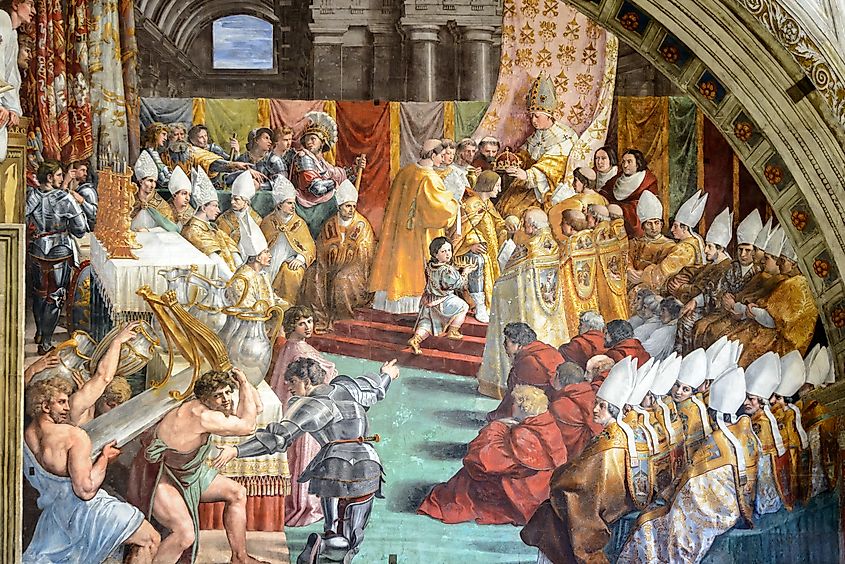
The coronation of Charlemagne as Emperor of the Romans in 800 was a significant event in European history that marked the beginning of the Carolingian Empire. The coronation took place in Rome and was conducted by Pope Leo III. It was a grand ceremony attended by many dignitaries, including members of Charlemagne's court.
The coronation of Charlemagne marked the revival of the Roman Empire in the West after centuries of decline. Charlemagne saw himself as the successor to the Roman emperors of old and sought to bring unity and stability to Europe. For Charlemagne, the coronation was an opportunity to legitimize his rule and cement his position as the most powerful ruler in Europe.
The coronation of Charlemagne also had significant cultural and political implications. It established the Carolingian Empire, named after Charlemagne's family, as the dominant power in Europe. The empire covered much of Western and Central Europe, and it would play a significant role in shaping the political and cultural development of the continent for centuries to come.
Charlemagne's Death: The End of an Era
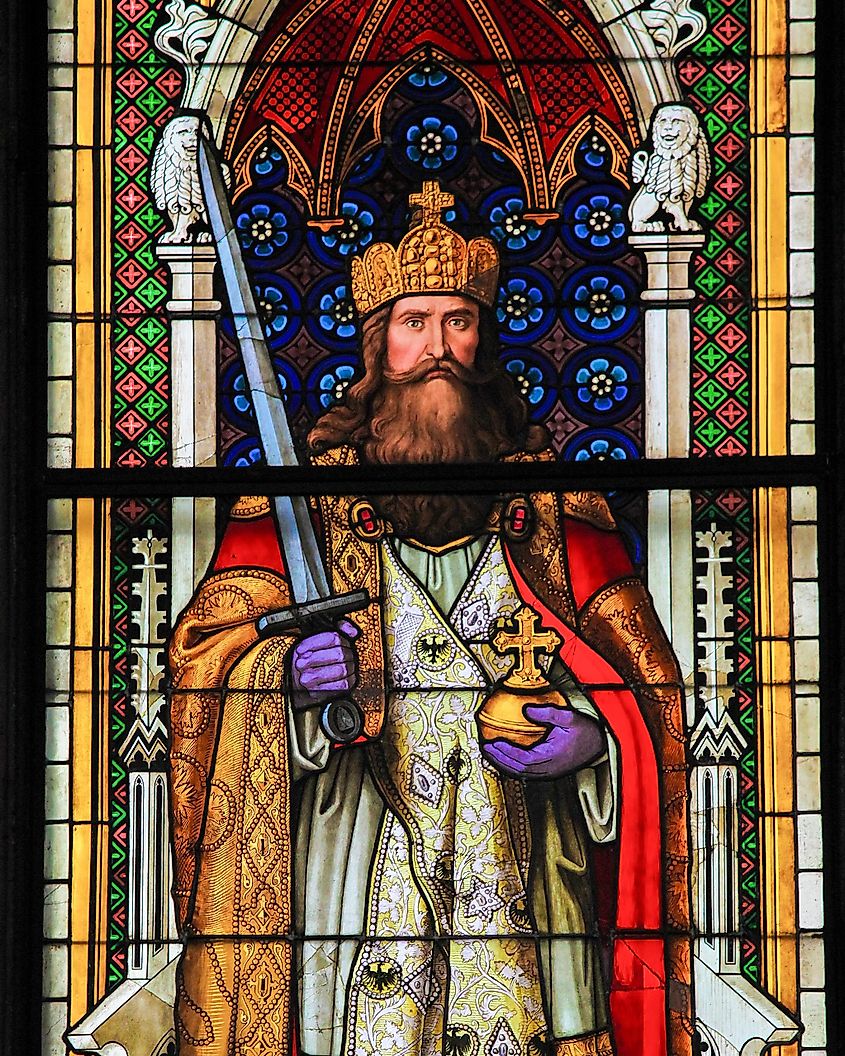
Charlemagne died on January 28, 814, at the age of 72. He had been in poor health for some time and had suffered from a variety of ailments, including fevers, kidney stones, and arthritis. Charlemagne's death marked the end of an era, as he was one of the most significant rulers in European history and had shaped the course of the continent through his military conquests, cultural achievements, and political reforms. Charlemagne was succeeded by his son Louis the Pious, who inherited a vast and powerful empire that covered much of Western and Central Europe. However, Louis was not able to maintain the unity and stability of his father's realm, and the Carolingian Empire eventually fell apart after his death, leading to the rise of independent states and the eventual creation of modern Europe.
In Conclusion
Charlemagne's reign as ruler of the Carolingian Empire had a lasting impact on Europe, shaping its culture, legal system, and political landscape. Through military conquests, he established a large empire that covered much of Western and Central Europe. Charlemagne also spread Christianity, supported education and the arts, and created a centralized system of government. His efforts helped to unify the various peoples of Europe under a common culture and legal system, laying the foundations for the Holy Roman Empire.
